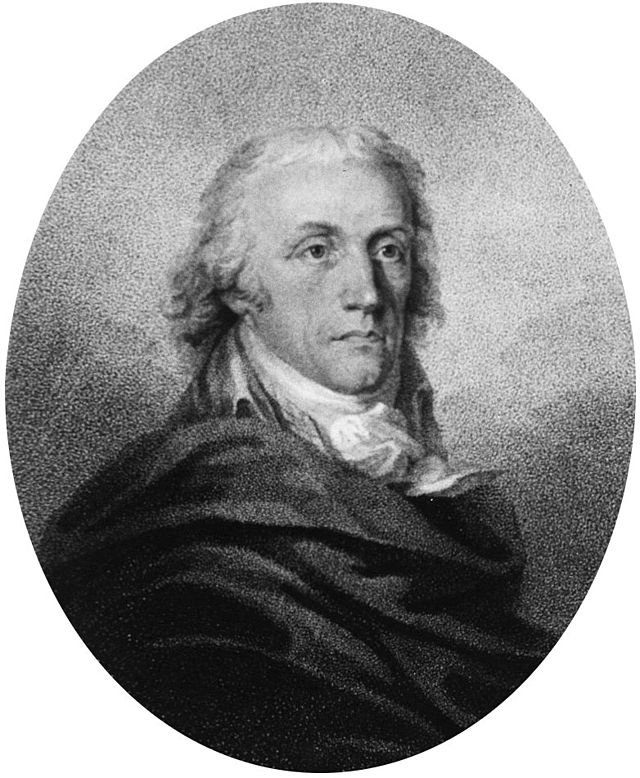Introduction
Johann Adam Schmidt is considered the father of Pharmacognosy. He was a German-Austrian surgeon, ophthalmologist, and pioneer in the science of pharmacognosy. Schmidt lived from 12 October 1759 to 19 February 1809. He was raised in Aub, close to Würzburg, and started his medical training as an army Unterchirurg before studying ophthalmology with Joseph Barth in Vienna. Here, we are talking about Who is the father of Pharmacognosy.
Here we are discussing about Who is the father of Pharmacognosy:

Johann Adam Schmidt’s Contribution
In particular, his work on iritis made substantial advances in the study of ophthalmology. In 1801, he published a significant paper titled “Über Nachstaar und Iritis nach Staaroperationen” (On Post-Cataract and Inflammation of the Iris Following Cataract Surgery). In 1802, he and Karl Gustav Himly co-founded Ophthalmologische Bibliothek, the first German journal of ophthalmic medicine.
Schmidt not only made significant contributions to ophthalmology but also to pharmacognosy. In 1811, he wrote the posthumously released book “Lehrbuch der Materia Medica” devoted to studying medicinal plants and their characteristics. The term “pharmacognosy” was initially coined in this book.
Perhaps Schmidt’s most well-known accomplishment is serving as Ludwig van Beethoven’s physician from 1801 to 1809. Beethoven even paid Schmidt a personal tribute in the Trio for piano, violin, and cello in E-flat major Op. 38 (an adaptation of the Septet Op. 20), underscoring the intimate bond between the two.
Johann Adam Schmidt’s contributions to pharmacognosy and ophthalmology have cemented his reputation as a significant figure in medical history.
About Pharmacognosy
The study of unprocessed medications derived from therapeutic plants, animals, fungi, and other natural sources is known as pharmacognosy. Johann Adam Schmidt is considered the father of Pharmacognosy. Pharmacognosy is “the study of the physical, chemical, biochemical, and biological properties of drugs, drug substances, or potential drugs or substances of natural origin as well as the search for new drugs from natural sources” by the American Society of Pharmacognosy.
Pharmaceutical Objectives
- Herbalists consider the morphology, physiology, and chemical qualities of plants to identify and certify them as medicinal plants correctly. The effectiveness, safety, and quality of herbs depend on this.
- Pharmaceutical researchers develop methods for extracting bioactive substances from medicinal plants. These substances include, but are not limited to, alkaloids, flavonoids, terpenoids, and other secondary metabolites with pharmacological effects.
- Chemists utilize various analytical methods to ascertain isolated molecules’ chemical composition and structure, including spectroscopy and chromatography. “Characterization” and “structural elucidation” are the names of these methods. The accessible molecular processes underlie their therapeutic effects.
- Pharmacogenomics, which covers medication dose and delivery methods, is used in creating and producing herbal medicines. Various techniques are used to examine physical attributes and stability.
- Pharmacologists undertake chemical experiments to determine natural materials’ biological activity and possible therapeutic uses. Investigating their pharmacological qualities, such as their antimicrobial, antibacterial, antioxidant, anticancer, and other capabilities, is crucial to this.
- Establishing pharmaceutical standards is necessary to guarantee the efficacy of natural products. Chemists use various techniques to verify herbal medicines’ purity, effectiveness, and stability, among other properties.
Who is credited with founding Indian pharmacy education?
Father of Pharmacy in India—Prof. Mahadeva Lal Schroff is regarded as the Father of Pharmacy Education in India since he gave the profession of pharmacy the appropriate path and inspired many pharmacist generations. Despite not having a pharmacy degree, he significantly impacted the industry.
FAQs
What were Dioscorides’ contributions to pharmacognosy?
Dioscorides’ most significant contribution was his work De Materia Medica, a comprehensive guide to medicinal plants and their uses.
He meticulously documented numerous plant species’ botanical characteristics, preparation methods, and therapeutic properties.
Dioscorides’ classification system laid the groundwork for future pharmacognosy and botanical medicine studies.
How did Dioscorides influence the development of pharmacognosy?
Dioscorides’ work provided a systematic framework for understanding the medicinal properties of plants, facilitating advancements in pharmacognosy.
His writings were translated into various languages and disseminated across cultures, contributing to the global exchange of herbal knowledge.
Many of the plant-based remedies described by Dioscorides continue to be studied and utilized in modern pharmacology.
Was Dioscorides the sole contributor to early pharmacognosy?
While Dioscorides’ “De Materia Medica” is celebrated as a foundational text, he was part of a broader tradition of herbal medicine spanning multiple ancient civilizations.
Other notable figures, such as Theophrastus, Galen, and Avicenna, also contributed significantly to understanding medicinal plants and their applications.
Conclusion
Pedanius Dioscorides rightfully earns the title of the Father of Pharmacognosy for his monumental contributions to the field. Through his seminal work “De Materia Medica,” Dioscorides established a systematic approach to studying medicinal plants that continues to influence pharmacognosy today. His legacy endures as a testament to the enduring value of botanical knowledge in healthcare and the indispensable role of plants in the development of medicine. As we navigate the complexities of modern pharmaceuticals, acknowledging Dioscorides’ pioneering efforts serves as a poignant reminder of the deep-rooted connection between humanity and the natural world in our pursuit of healing.



